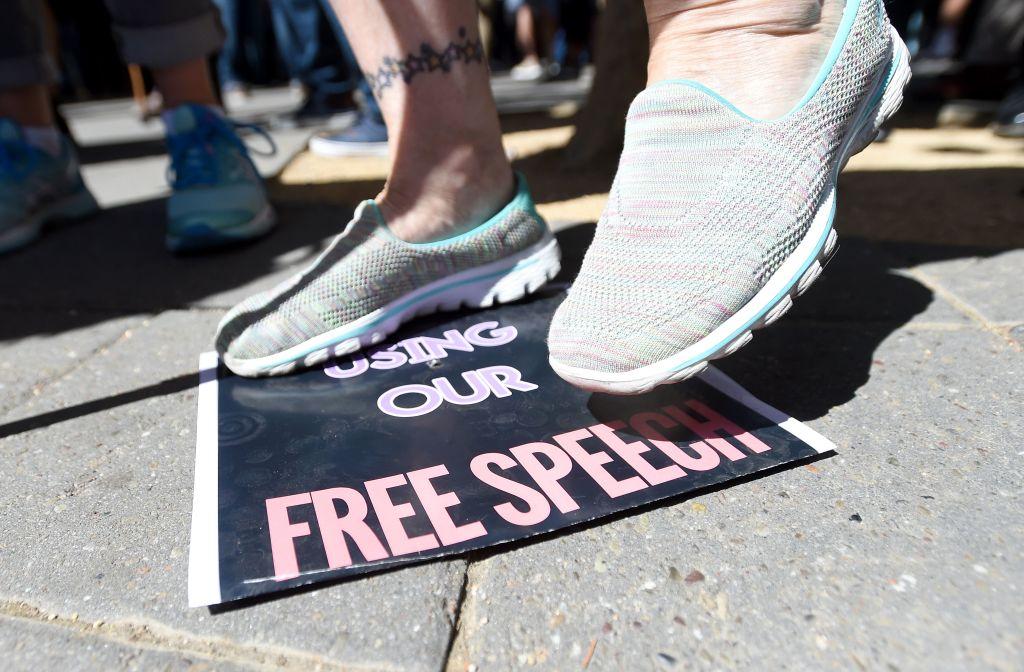NATIONAL HARBOR, Md.—Freedom of speech is increasingly under threat in many college and university campuses throughout the country, according to Secretary of Education Betsy DeVos. Speech suppression in schools is a “very timely and serious issue” that needs addressing, she urged.
A college “should be a place where we explore other opinions and ideas,” but today “that possibility is more and more controlled,” she said at the Conservative Political Action Conference in National Harbor, Maryland, on Feb. 22.





